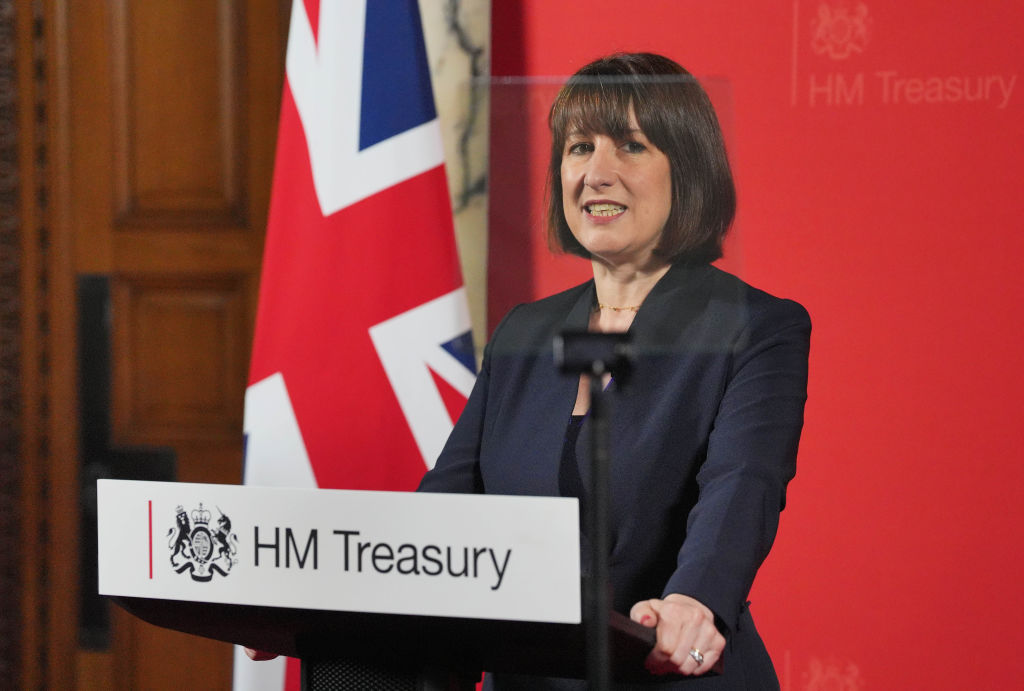Chancellor Rachel Reeves this afternoon launched the opening salvo of what promises to be a grueling austerity program for the Labor government. As she announced cutbacks to winter fuel payments and canceled road and rail initiatives, opposite number Jeremy Hunt stated — probably accurately — that Labor is paving the way for tax increases in the near future.
The first question that should be asked about Labor’s turn toward harsh austerity is: why now? Reeves and her party are trying to spin this as if their predecessors hid the extent to which Britain is broke. They appear to want to play on public misperceptions about how Government budgeting works, telling voters that the Tories simply hid the credit card bills and Labor came along and found them.
But this is not how Government finances work. Rather, organizations like the Treasury and the Office for Budget Responsibility (OBR) come up with economic forecasts and forecasts of public borrowing. These forecasts are then given to the Chancellor who uses them to set the Government budget, and only change when there is a large external event or ‘shock’ to the economy. Since there has been no such shock since the election, we can infer that Labor knew exactly how bad the situation was but misled the public during the campaign.
It is then worth asking what it means for a country like Britain to be broke and what it will mean for the country moving into the future. Since the Chancellor revealed to the public how bad the situation is, a public debate has sprung up on social media. Some on the Left, influenced by Modern Monetary Theory (MMT), are arguing that a country like Britain can never be broke because it issues its own currency.
The argument here is effectively that the Government can borrow as much as it wants because the Bank of England (BoE) can buy up the bonds even if private investors do not want to hold them. In this vision, all the Chancellor must do is lean on the central bank and tell it to buy the debt. To some extent, what the MMT proponents say is true. This is basically how the quantitative easing (QE) programs worked in the wake of the global financial crisis of 2008.
But what these people miss is that Britain runs a very large trade deficit. In the third quarter of 2023, it is estimated that the country had a current account deficit of £21.2 billion — or 3.1% of GDP. To finance this deficit, the British Government must sell debt to foreigners. If these sales dried up, sterling would have to adjust downward to close the gap, resulting in a substantial rise in the price of imports.
Since imports make up around 33.4% of GDP this would mean a rise in the price of approximately a third of British goods and services. Such inflation would feed through into the system more generally and Britain would see substantially higher inflation. This in turn would mean a decline in real incomes and another round of the cost-of-living crisis. And so the choice for the Government is to impose austerity through tax increases and spending cuts or allow the markets to impose austerity through higher rates of inflation.
Perhaps the most depressing thing about this austerity is that there is no real end in sight. Unlike the conditions placed on the PIIGS countries during the Eurozone debt crisis, there does not appear to be any intention here for the country to regain its competitiveness and experience growth once more. The chatter in Whitehall and around economic think tanks is that stagnation is here to stay. Phrased differently, Britain is about to enter a period of severe economic decline.
Keir Starmer’s time in office is set to be one of the grimmest the UK has experienced since the end of rationing after the Second World War. Do not expect British leaders to ask how the country went bankrupt in the first place. That would require reevaluating the runaway spending associated with Covid-19 lockdown policies, the huge losses from the Bank of England’s QE programs, and the war in Ukraine which gave rise to skyrocketing energy prices and the extremely costly Energy Price Guarantee. In short, it was the civil servants with their supposed technocratic acumen who drove Britain into the fiscal ditch — and it is the British taxpayer who will pay the price.











Join the discussion
Join like minded readers that support our journalism by becoming a paid subscriber
To join the discussion in the comments, become a paid subscriber.
Join like minded readers that support our journalism, read unlimited articles and enjoy other subscriber-only benefits.
Subscribe